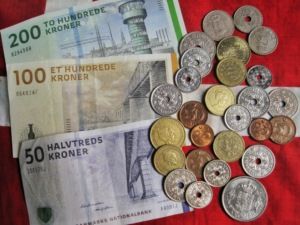News
Interest rates raised to fight inflation, Danish banks considering an end on interest paid to borrowers
This article is more than 3 years old.
Inflation in Denmark rose to 9.1 percent in June, leading the European Central Bank and Danmarks Nationalbank to raise interest rates. In Denmark, banks are also being called on to drop so-called ‘negative’ interest rates

Inflation has hit a three-and-a-half-year low in Denmark. Photo: Pixabay/assy
According to Danmarks Statistik, inflation in Denmark rose to 9.1 percent in June from – up from 8.2 per cent in May 2022. In the case of both Denmark and the EU, inflation is at its highest level since the EU began calculating its harmonized consumer index in 1997.
At the same time, however, Denmark is faring better than many of its neighbors – inflation in the country is the tenth lowest among the 27 EU countries.
To a large extent, the record-breaking inflation has been associated with higher prices for food and fuel. According to economist Lisette Rosenbeck Christensen, inflation will likely remain around this level for the next several months, reported BT.
Drop negative interest rates
In an effort to curb inflation, both the European Central Bank and Danmarks Nationalbank have now raised interest rates by half a percentage point.
Furthemore, several organizations – including Forbrugerrådet Tænk, Ældre Sagen, and Danske Seniorer – are calling on big banks in Denmark to drop negative interest rates, which refer to interest paid to borrowers rather than to lenders.
Anders Dam, managing director of Jyske Bank, told TV2 that negative interest rates mean the majority of Danes’ money ends up as loans to other consumers.
Nykredit has become the first major Danish bank to remove interest on private customers’ deposits, and Arbejdernes Landsbank and Vestjysk Bank have followed suit.










































